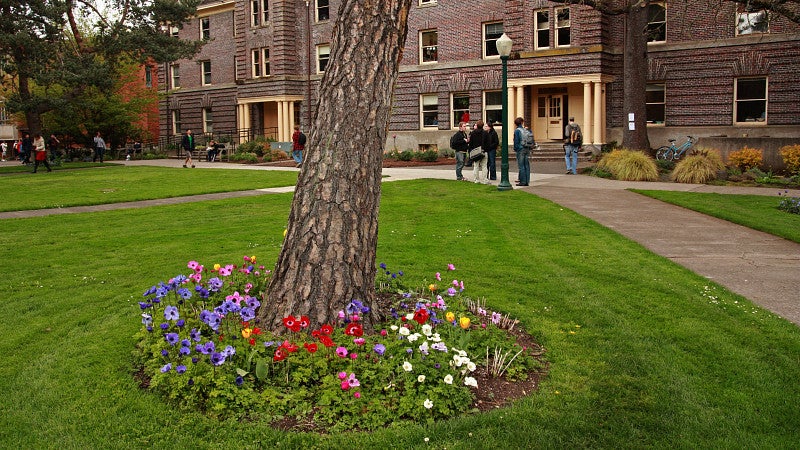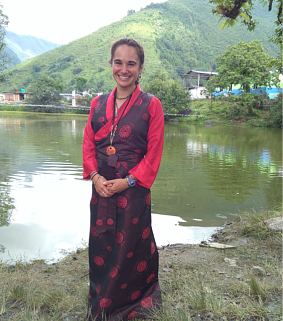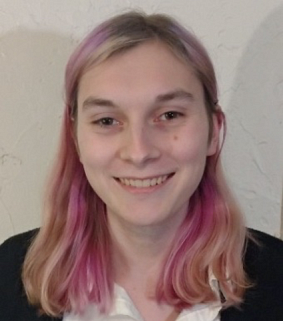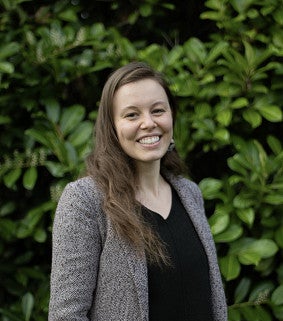Our students consistently receive grants and awards from units across campus, including the Division of Global Engagement, the College of Arts and Sciences, the Center for Latinx and Latin American Studies, the Center for the Study of Women in Society, and the Center for Asian and Pacific Studies among others.
Faculty from other departments and colleges are enthusiastic about working with Global Studies students, who have a reputation for independent thought, bold and creative ideas, a willingness to learn and a capacity for seeing a challenging project through to completion.
Both undergraduate and graduate students who write a thesis are guided by a committee with at least three members, ensuring a diversity of expertise and a network of support. Thesis committees may include faculty from any unit across campus, as well as community members and professionals with relevant experience and expertise. Faculty from the Schools of Law, Business, PPPM, Education, Journalism, and other departments from across the entire campus regularly serve as committee members for graduate students and are available to consult regarding research and career directions.
Global Studies faculty have ongoing collaborations and close ties with Asian Studies, African Studies, Latin American Studies, Environmental Studies, the Center for Asian and Pacific Studies, and the Center for Global Health.
Students are encouraged to broaden their expertise through:
- Concurrent degrees at the MA level, most often with Planning, Public Policy, and Management, the JD/MA program with the School of Law, or Conflict and Dispute Resolution.
- Double majors and minors at the bachelor's level, most often with a BA in a language susch as Spanish or Chinese, a professional degree such as Business or Journalism.
- Any of the majors and minors in the College of Arts and Sciences, such as Anthropology, Women's, Gender, and Sexuality Studies, or an area studies program such as Asian Studies.
Affiliated Program: School of Global Studies and Languages

At the School of Global Studies and Languages (GSL), UO students engage with diverse cultures, languages, histories, and lifeways across the world. GSL prepares our graduates for life after college with an interdisciplinary curriculum, innovative language teaching, abundance learning opportunities outside the classroom, and paths of study that lead to many options for real-world careers.
Interdisciplinary Student Research Profiles

Grace Wright, Global Studies master's and certificate in nonprofit management candidate, 2022
Higher Secondary School Students' Obligations and Experiences Throughout the COVID-19 Pandemic in Nepal
"I'm researching students' higher secondary schooling experiences from the village community where I taught for one year previously in Nepal. I have conducted remote interviews with students, faculty members, teachers, and community members from the village and surrounding area. I am exploring student's social relationships and family obligations, and how these in turn affect their educational pursuits and have been impacted by the COVID-19 pandemic."
Grace's project draws on insights from education, public health, sociology, and South Asian studies. She has especially benefited from committee member Dr. Shrochis Karki's insights as a development practitioner based in Nepal and participating virtually in her committee members.

Lily Strobel, Global Studies and Asian Studies, '22
How music is used to preserve Ainu culture
Music is used by the Ainu of Japan as a way to communicate with the gods and to pass down cultural beliefs to the younger generation, but it became co-opted for the purpose of tourism, allowing this tradition to survive the attempted eradication of Ainu culture by the Japanese government. In the modern day, Ainu have developed two different approaches to music: traditionalist and fusionist. The traditionalist approach favors performing Ainu music exactly the same as it was traditionally and is the type of performance that is seen frequently in museums. The fusionist approach uses traditional Ainu music as a base layer, and then incorporates elements of more modern music, such as rap, reggae, or jazz. Both approaches seek to educate non-Ainu history and social issues, while also providing a location for Ainu to learn more about their culture and express their Ainu-ness.
Associated faculty: Dr. Alisa Freedman of EALL and Asian Studies, Dr. Kathie Carpenter of Global Studies and Asian Studies.

Tara Olson, Global Studies master's candidate, '23
Agroecological Transformation in the Willamette Valley
My research project examines the progressive and radical pathways towards food systems transformation by analyzing the intersections between food systems sustainability and power dynamics across race, gender, class and indigeneity. I am using a historical analysis to understand current and future pathways. My research project will serve as one of 15 case studies for Agroecological Transitions for Territorial Food Systems (ATTER)’s broader research network.
A number of associated faculty at UO are working on this case study, including Stephen Wooten, David Meek, Sarah Stapleton (College of Ed) and Michael Fakhri (School of Law); as well as Colin Anderson (University of Vermont). I am also working towards a certificate in Nonprofit Management and the Food Studies specialization, and integrating both into my research project.

